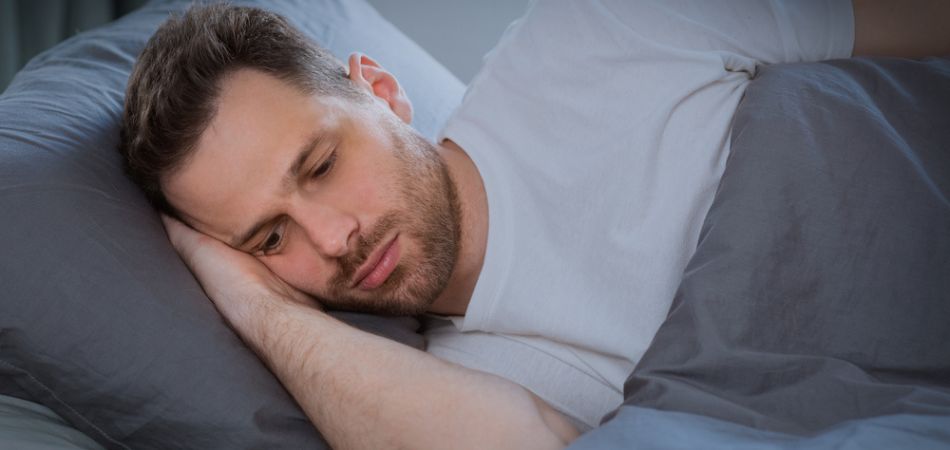Last Updated:
September 24th, 2025

For most people entering recovery, the first three days sober can present the greatest challenges. After this period, physical withdrawal symptoms may start to subside, and you may have made it through the toughest moments.
Yet at this point, you might start to think, “I’ve been too hard on myself. I’ve been so good these past few days, so maybe I can have one glass tonight as a reward.” This presents a danger zone.
We will help you reinforce your efforts at this critical juncture, highlighting common physical and emotional challenges and how this milestone fits into your sustained recovery from alcoholism.
How do the first three days lead up to day 4?
In the first 24 to 72 hours, the body and mind go through turbulence as they adjust to life without alcohol in the system. These first few days form a critical part of the quitting alcohol timeline, where physical symptoms often peak before gradually easing.
For many, day 1 is likely to follow a day of heavy alcohol consumption. This usually means they’ll first experience basic, or common hangover symptoms. However, as the initial hangover symptoms subside, actual alcohol withdrawal symptoms can start, especially for daily drinkers.
On day 2, people typically experience a wider range of symptoms. Those with milder addictions may have their symptoms start to subside, while others begin to experience more severe withdrawal.
During day 3, many people’s withdrawal symptoms will peak. This can be one of the most challenging days, and the urge to relieve withdrawal symptoms with alcohol can be overwhelming.
Alcohol withdrawal day 4
By the fourth day, most people will start to notice physical symptoms easing. Day 4, then, may become your symbolic make-or-break moment, where a crossroad presents itself to you. The challenge becomes less of a physical challenge and more of a psychological bottle. You might be captured by a feeling on the fourth day that your mind has been placed in a labyrinth, where each turn comes with confusion and disorientation, though there will eventually be glimmers of light that lead you to the right choices.
Here are some of the most common effects you’ll feel in both your body and mind on the fourth day:
- Shaking hands (tremors): The brain continues to deliver increased nerve activity, which means shaking hands can persist, though they should gradually improve.
- Sweating: The body continues to regulate temperature, which can be greatly affected by previous alcohol consumption. Sweating can continue, though it often reduces by day 4.
- Headaches or nausea: It’s not uncommon to suffer from blistering headaches and nausea on day 4. The brain’s neurochemistry is adapting to the depressive effects of alcohol, and a sudden increase in neural activity leads to headaches.
- Sleep issues: Insomnia is one of the most commonly reported effects throughout the acute withdrawal phase. Restless nights leading to extremely tired days can be challenging for those suffering.
- Dangerous complications (in severe cases): In some severe cases, delirium tremens (DTs) can occur, with research suggesting days 2 and 3 during withdrawal are more common. DT has a prevalence of almost 2% in people with alcohol dependence and requires immediate medical support.
- Anxiety, irritability, and mood swings: Being around loved ones can be difficult as common emotional hurdles are faced. Many negative feelings are common early sobriety symptoms, presenting immediate challenges.
- Cravings and urges to return: Strong urges to return to drinking can persist and will demand active coping.
- Brain fog: Brain fog has become a common expression for issues relating to thinking and memory. You may feel somewhat lost in a feeling of “clouded consciousness.”
- Deep, yet bewildering feelings of achievement: Leading further into clouded consciousness, you may experience an overwhelming sense of relief and pride. This could be a feeling you haven’t had for some time, if alcohol dependence has been prolonged.
- Improved hydration and stabilising heart rate/blood pressure: Vital signs across the body begin to strengthen in self-regulation. You’ll better absorb water and the nutrients in many of the foods you eat.
- Early liver recovery: While the extent and speed of healing depend on the severity of damage and your drinking history, your liver can start to recover in a matter of days and weeks after quitting.
- Gradual rise in energy levels: You may find surging energy levels after the fourth day, which can make a fantastic time for planning and carrying out new, healthy experiences that are conducive to sober coping mechanisms.

How can I stay motivated at this stage of recovery?
Reaching four alcohol free days is a milestone that proves change is possible, even when symptoms feel overwhelming. Use these steps to put them on the strongest foundation for sustained sobriety:
- Developing strategies for cravings and insomnia: Cravings are often strongest in the first few days. Extensive research highlights the need for behavioural strategies and their efficacy for addressing insomnia. Work on coping strategies that help you manage rising urges, including breathing exercises or dedicated apps for mindfulness.
- Practical healthy habits of nutrition and exercise: Paying more attention to what you eat and eating mindfully helps stabilise your blood sugar levels, as well as reducing cravings. NCBI research suggests physical activity is linked with lower relapse risk. As far as your body safely allows, light exercises like walking or yoga can be used to improve your mood and regain control.
- Lean into your support network: Deeply consider how your support network fits into your life. If you have the opportunity to talk openly with trusted friends, family, or a support group, you may help quell feelings of isolation. You may also ask someone to help keep you accountable. If available, professional help from a doctor or counsellor can keep you grounded in the early stages of recovery.
- Take time to write and reflect: Finally, it can be deeply rewarding to start a journal or diary to help you keep track of your achievements. One of the worst effects of deep addiction is its ability to ruin a person’s sense of self-worth. Do not underplay your achievement. Find a way to log how you’re progressing. You can look back at this writing if or when more difficult times arise in the future.
I want change, where can I find help for alcohol addiction?
Reaching four days without alcohol is a milestone to be proud of. You may start to face new, overwhelming sensations as the body goes through complete upheaval. Yet please remember, recovery is not something you need to face on your own.
At UKAT, we specialise in medically supported detox programmes that help you manage withdrawal symptoms with care. If you’re ready to step into the future you want, free from addiction, reach out to our admissions team today. A conversation could be the first move towards a brighter future where you’re in complete control.
(Click here to see works cited)
- Current and Potential Pharmacological Treatment Options for Insomnia in Patients with Alcohol Use Disorder in Recovery – Roehrs – 2020 – Neuropsychopharmacology Reports – Wiley Online Library, onlinelibrary.wiley.com/doi/10.1002/npr2.12117
- Grover S, Ghosh A. Delirium Tremens: Assessment and Management. J Clin Exp Hepatol. 2018 Dec;8(4):460-470. doi: 10.1016/j.jceh.2018.04.012. Epub 2018 May 5. PMID: 30564004; PMCID: PMC6286444.
- “Reasons You May Have Brain Fog.” WebMD, WebMD, www.webmd.com/brain/ss/slideshow-brain-fog
- Markwald RR, Iftikhar I, Youngstedt SD. Behavioral Strategies, Including Exercise, for Addressing Insomnia. ACSMs Health Fit J. 2018 Mar-Apr;22(2):23-29. doi: 10.1249/FIT.0000000000000375. PMID: 31467475; PMCID: PMC6715137.
- Linke SE, Ussher M. Exercise-based treatments for substance use disorders: evidence, theory, and practicality. Am J Drug Alcohol Abuse. 2015 Jan;41(1):7-15. doi: 10.3109/00952990.2014.976708. Epub 2014 Nov 14. PMID: 25397661; PMCID: PMC4831948.



